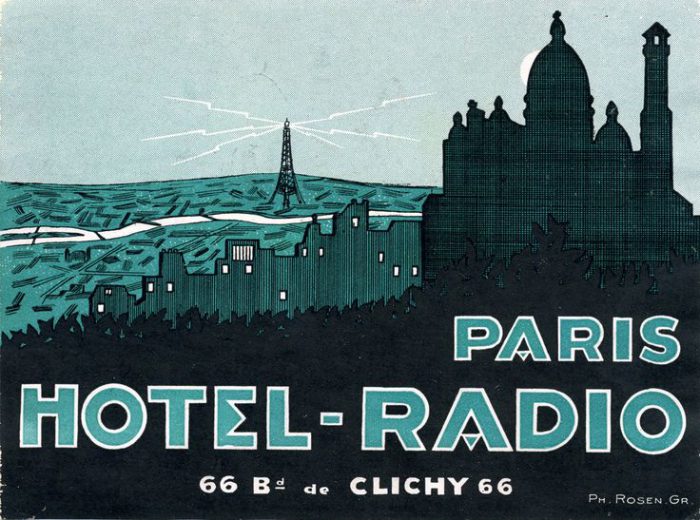
People who subscribe to dozens of podcasts may forget that there is indeed a podcast learning curve. For people who’ve never listened to podcasts before, the technology may feel like enough of a hurdle to to induce them to skip them all together. Meanwhile, those who do subscribe to a lot of podcasts know how long that list of unheard episodes can get, coming to seem as unmanageable as an overflowing email inbox.
The French startup Hack the Radio tries to tackle both these problems. On the one hand, it hopes to make podcast listening less intimidating for newbies. (Sixty-one percent of French people have never listened to a podcast, according to research done for Audible earlier this year. The figure is similar in the United States, where 60 percent of people ages 12 and older have never listened to a podcast.) On the other hand, it aims to improve the listening experience for people who already consume podcasts.
“The experience is limited by the RSS model,” said Carine Fillot, referring to the RSS format through which podcasts are still distributed. “I was thinking about a way to wreck the RSS model with the podcast, to imagine something else. By talking with people, I understood that we had, perhaps, to try a different way, to base it on streaming, to offer a new kind of experience.”
Fillot, who worked at Radio France’s Le Mouv’ (the French public radio station aimed at young people) for several years, is the founder and CEO of Hack the Radio, a French startup that just won the first annual Next Journalism Prize, which “aims to reward long-term innovations and risk-taking in the field of media.” The prize is sponsored by the French journalism school Centre de Formation des Journalistes (CFJ) and the Nieman Foundation, of which Nieman Lab is a part. Its goal is to encourage European journalists — whether they’re just out of journalism school or mid-career — to work on more entrepreneurial projects, explained Florence Martin-Kessler, a CFJ board member, cofounder and editor-in-chief of Live Magazine, and a 2011 Nieman Fellow.
The prize doesn’t come with money; instead, the winner receives a trip to the Nieman Foundation to workshop their project with Nieman fellows and staff, and gets visibility and mentorship within the Nieman and CFJ networks, including the chance to pitch the idea to French media executives.
Working at Radio France, Fillot had started wondering how audio listeners could have more direct relationships with audio providers. Combining that question with the aforementioned problems with podcasts, she conceived of a Facebook Messenger chatbot that would deliver news and help people — especially those who hadn’t listened to podcasts before — discover relevant audio content by chatting with them about what they’re interested in. Hack the Radio combines an API with French- and English-language podcasts and radio content, selected by humans, to deliver those recommendations. The content can be played from an audio player within the chatbot, removing the need to figure out how to download a separate podcast app and subscribe to podcasts from within it.
“This is also an open window to imagine a hybrid storytelling between audio and writing,” Fillot wrote in her application. “If audio isn’t easily made viral, maybe it can be something else as strong.”
The jury — led by Martin-Kessler and Anne-Lise Carlo, who is also a journalist for Live Magazine — included Ann Marie Lipinski, curator of the Nieman Foundation; Laurence Bagot, a journalist and 2005 Nieman Fellow; Ludovic Blecher, head of the Google Digital News Initiative and a 2013 Nieman Fellow; Daniel Daum, managing director of Prisma Media; Julie Joly, executive director of the CFJ; Renée Kaplan, head of audience engagement at the Financial Times; Turi Munthe, a venture partner at North Base Media; Daniel Pouzadoux, president of the Fondation Varenne; and Adam Thomas, director of the European Journalism Center. The 44 applications, from 13 European countries, were narrowed down to eight finalists before Hack the Radio was chosen as the winner. (Eight of the nominated projects weren’t eligible either because they weren’t European or because they weren’t related to journalism.)
#HackThRadio project wins @next_journalism Prize. Thanks to @cfjparis @NiemanLab @JulieJoly @daum_daniel @turi @Alizcarlo @florencemk #jury pic.twitter.com/62FHwxmpCu
— Carine Fillot (@carinefillot) October 13, 2017
“Carine had a really interesting profile,” said Martin-Kessler. “She had a secure position in French public radio and left that to learn code, which is very unusual [in France] for journalists — unheard of, almost.”
Fillot sees different types of audio content as being relevant at different times of day, and in the coming months, she wants to experiment with this with the chatbot prototype. In the morning, for instance, it might focus on breaking news selections from FM radio; midday and evening recommendations could differ. Eventually, the bot could incorporate playlists. “We have to do a proof of concept about, first, the curation,” Fillot said. “We have to think: What will be a playlist experience be in a chat app?”